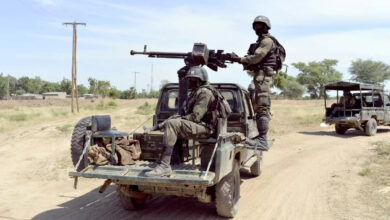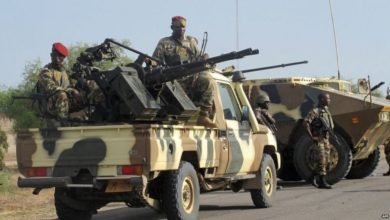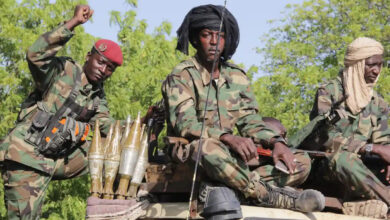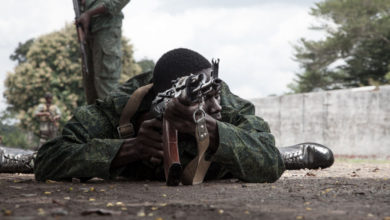The death toll after a military and police operation in an English-speaking region of Cameroon shaken by an armed separatist campaign stands at 32, including five “hostages,” the government said.
The incident occurred on Friday, May 25 at a motel in Menka in the Northwest Region – one of two regions gripped by fighting over the last eight months.
“Twenty-seven terrorists [were] neutralized” by a 30-member special unit of police and troops, government spokesperson Tchiroma Bakary, who is also communications minister, said late Monday.
Out of “15 hostages” taken by the group, five died, all of them killed by the gang, Tchiroma said.
A police officer was wounded, as was a “terrorist,” while a woman surrendered, he said.
Tchiroma said the group was an “armed gang” that for months had been “sowing terror and desolation” in the region, killing gendarmes and carrying out kidnappings, rape and extortion.
Security forces found five pump-action shotguns of a type only used by special forces, as well as 17 combat guns, 10 hunting rifles, about 30 military uniforms, and five berets “which belonged to police and gendarmes who were shot dead in cold blood by the same terrorists,” Tchiroma said.
Tchiroma said images of the dead at Menka have been widely distributed on social media, prompting human-rights watchdogs and opposition politicians to voice outrage.
He denied “allegations that the Cameroonian army carried out a massacre on the civilian population”.
Human rights lawyer and activist Agbor Balla Nkongho said at least 34 bodies were found on Friday, and another unnamed local source said she saw 29 bodies, including three outside a school, Reuters reported.
Speaking after a party delegation visited Menka on Saturday, Nji Tumasang, an MP with the English-speaking opposition Social Democratic Front, said 22 people had been killed.
Their identity was unclear, but villagers said they were criminals, not “terrorists” as the army had claimed, Tumasang said.
Around a fifth of Cameroon’s population of 22 million is anglophone, or English-speaking, while the ramainder speak French. The linguistic division dates back to the colonial period – it became a German colony in 1884 but was divided between Britain and France after World War I.
In 1960, the French part gained independence, becoming Cameroon, and the following year, the British-ruled Southern Cameroons was amalgamated into it, becoming the Northwest and Southwest Regions.
For years, resentment built among anglophones, fostered by perceived marginalization in education, the judiciary and the economy at the hands of the French-speaking majority.
Demands for greater autonomy were rejected by 85-year-old President Paul Biya, who has been in power for more than 35 years.
The crisis escalated last October after the declaration of the “Republic of Ambazonia” in the anglophone Northwest and Southwest Regions. Scores have died and tens of thousands have fled their homes.
Human-rights watchdogs point to a range of abuses, including abductions and targeted killings.
According to the International Crisis Group think tank, “at least 120” civilians and “at least 43” security forces have been killed since the end of 2016.
The UN’s Office for the Coordination of Humanitarian Affairs says around 160,000 people have been internally displaced and 20,000 have sought refuge in neighboring Nigeria as a result of the violence.
With reporting from AFP










